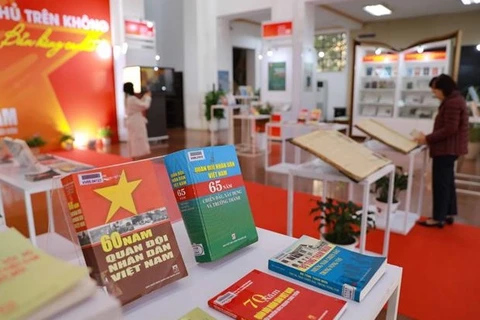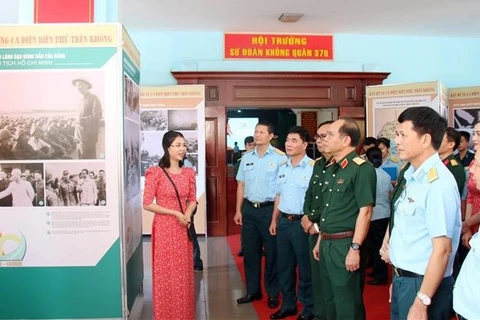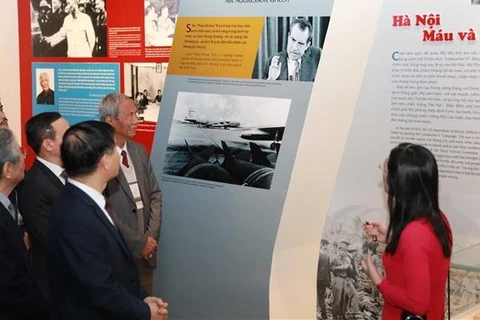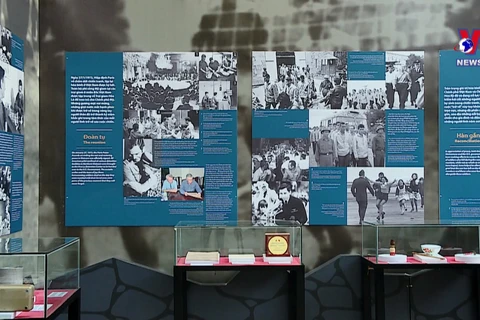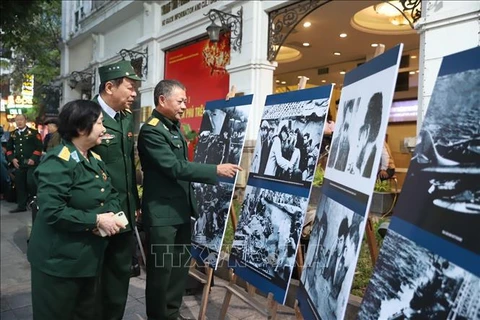Moscow (VNA) – Vietnamese people were very united despite hardships, Russian Lieutenant General Vitor Phillipov told Vietnam News Agency in Moscow, remembering his days in Vietnam in 1972 which went down to history with the “Dien Bien Phu in the air” victory that led to the end of the foreign aggression war in Vietnam.
In the 12 days and nights of fierce fights in Hanoi in late December 1972 against the US air force, the Vietnamese army and people defeated US airstrikes in the North, shooting down 81 aircraft of all kinds, including 34 B-52 strategic bombers, forcing the US to sign the Paris Agreement on ending the war and restoring peace in Vietnam in January 1973.
This triumph is also called the “Dien Bien Phu in the air” victory, which took the name from the victory of the Dien Bien Phu Campaign in 1954 that put an end to the French colonial rule over Indochina.
Phillipov said in December 1972 when the US bombed Hanoi, he led a team of Russian experts working in the capital city to help Vietnamese forces operate missile systems, conduct combat operations, troubleshoot technical problems, and repair missile systems damaged by US aircraft.
He held that the combat effectiveness of Vietnam's anti-aircraft missile troops was at a high level.
Vietnamese people, at that time, did not have enough food and lived under repeated aerial bombardments, but they were still determined to defeat the invaders and succeeded anyway, he noted.
Phillipov was among the Russian military experts once working in Vietnam during the war, taking part in a recent get-together held by the Vietnamese Embassy in Moscow.
Also present at the event was Nikolai Kolesnik, chairman of an association for such experts, who kept in his mind unforgettable memories of training Vietnamese soldiers specialising in missiles in extremely harsh conditions of the tropical climate with high humidity.
Kolesnik said Vietnamese missile operators had successfully applied ambush tactics, quickly changing locations after each battle, and cleverly camouflaged, with their anti-aircraft systems always appearing unexpectedly against the enemy’s aircraft.
He said with delight that every time former experts go back to Vietnam, they have the pleasure of meeting their comrades-in-arms and visiting places they helped protect. Vietnam has changed to become a developing and prosperous country, Kolesnik added./.
In the 12 days and nights of fierce fights in Hanoi in late December 1972 against the US air force, the Vietnamese army and people defeated US airstrikes in the North, shooting down 81 aircraft of all kinds, including 34 B-52 strategic bombers, forcing the US to sign the Paris Agreement on ending the war and restoring peace in Vietnam in January 1973.
This triumph is also called the “Dien Bien Phu in the air” victory, which took the name from the victory of the Dien Bien Phu Campaign in 1954 that put an end to the French colonial rule over Indochina.
Phillipov said in December 1972 when the US bombed Hanoi, he led a team of Russian experts working in the capital city to help Vietnamese forces operate missile systems, conduct combat operations, troubleshoot technical problems, and repair missile systems damaged by US aircraft.
He held that the combat effectiveness of Vietnam's anti-aircraft missile troops was at a high level.
Vietnamese people, at that time, did not have enough food and lived under repeated aerial bombardments, but they were still determined to defeat the invaders and succeeded anyway, he noted.
Phillipov was among the Russian military experts once working in Vietnam during the war, taking part in a recent get-together held by the Vietnamese Embassy in Moscow.
Also present at the event was Nikolai Kolesnik, chairman of an association for such experts, who kept in his mind unforgettable memories of training Vietnamese soldiers specialising in missiles in extremely harsh conditions of the tropical climate with high humidity.
Kolesnik said Vietnamese missile operators had successfully applied ambush tactics, quickly changing locations after each battle, and cleverly camouflaged, with their anti-aircraft systems always appearing unexpectedly against the enemy’s aircraft.
He said with delight that every time former experts go back to Vietnam, they have the pleasure of meeting their comrades-in-arms and visiting places they helped protect. Vietnam has changed to become a developing and prosperous country, Kolesnik added./.
VNA


